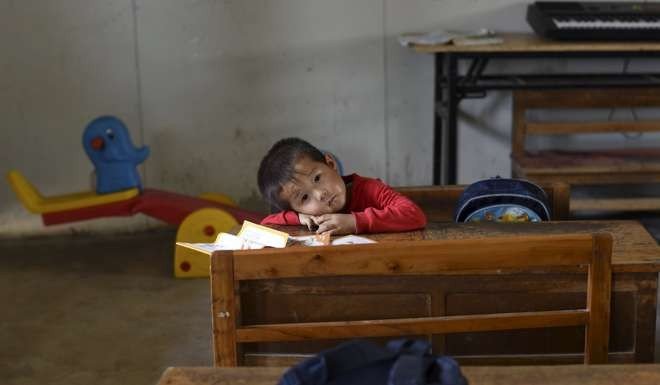In Asia, education is a central tenet of society. The UN has prioritised the issue with a mission to promote “inclusive and equitable quality education”. Enrolment in primary education in developing countries has reached 91 per cent, but 57 million children remain out of school .
Now is the time for philanthropy to back innovative approaches that can tackle the task at hand. Delivering inclusive and equitable education at all levels will take more than just a blank cheque.
The automation of industries means future economic growth will be less dependent on labour-intensive jobs, with profound implications for education policy. But governments everywhere face challenges in ensuring education keeps pace with changing needs.
Who are the biggest Chinese philanthropists?
Take China. Resources have been invested in public education, but are still scarce and severely imbalanced. Quality teachers are concentrated in larger cities. Students dropping out of school is a serious issue in rural areas, especially for migrant workers who have to leave their children behind. China had 61 million “left-behind” children in 2014, accounting for 22 per cent of all its children.
China has 61 million left-behind children … that’s almost Britain’s total population
Action is needed to ensure these children have the necessary skills to enter the workforce. According to the “Yidan Prize Forecast: Education to 2030”, a study conducted by the Economist Intelligence Unit, China’s youth unemployment rate hit 10.8 per cent in 2015, and is projected to increase to 14 per cent in 2030.
Philanthropy in China is still at an early stage. Yet it is home to the world’s fastest-growing population of high-net-worth individuals. A new generation of philanthropists is already showing a growing willingness to step forward.
However, while good intentions are welcome, money without purpose achieves few results.
Philanthropy is best when it acts as a beacon for creative voices from around the world to gather to find solutions. This means putting philanthropy to work by funding effective programmes with measurable results, to enhance traditional models.
2030 vision: 5 ways the world’s educators must adapt to the new machine age
Technology will be key, helping to lower the cost of quality education and boosting outcomes, such as through big data applications, and using analytics to deliver an optimal learning environment. This may provide the next exciting stage in the growth of massive open online courses.
Investment has had a fantastic impact on students around the world, through better technology in the classroom, higher funding to institutions and scholarships for underprivileged students. A new generation of philanthropists can extend this impact by embracing their role as champions of innovative approaches to our biggest challenges.
[Source:-South China Morning Post]








